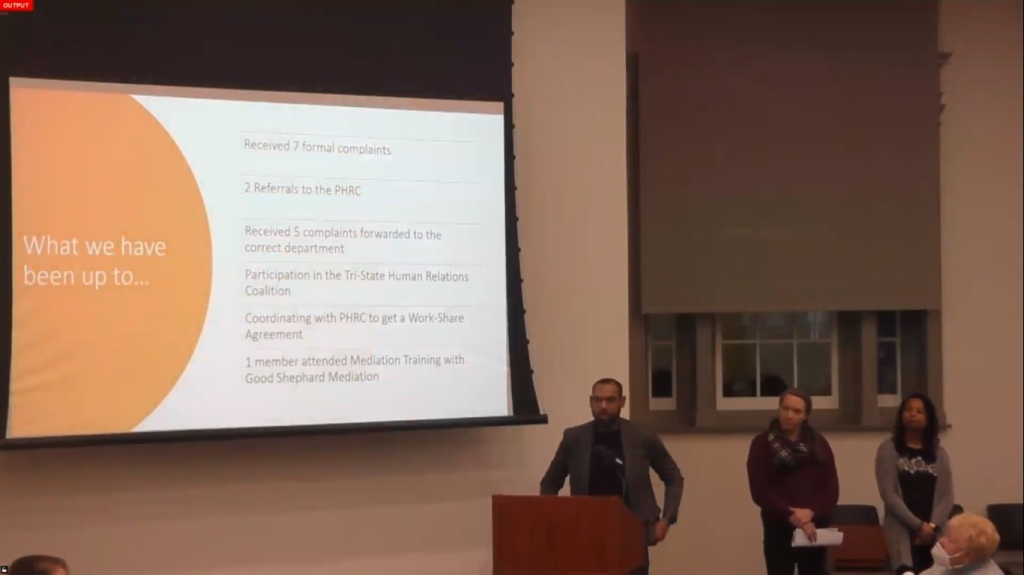Florida Utility Easement Law
Florida utility easement law regulates the rights and obligations of utility companies and landowners regarding the use and maintenance of utility easements. Utility easements grant utility companies the right to access and use land for the installation and maintenance of utility infrastructure, such as power lines or water pipes.
These easements are typically recorded in the property deed and are binding on current and future owners of the land. It is important for landowners to understand their rights and limitations when it comes to utility easements, as they may impact land use, property values, and potential development projects.
Additionally, utility companies must exercise their rights responsibly and compensate landowners for any damages or disturbances caused by their activities in the easement area.
What Is A Utility Easement?
Florida Utility Easement Law
When it comes to property ownership, understanding the laws and regulations that govern your land is essential. One important aspect of property ownership in florida is utility easements. These easements allow utility companies the right to access and use a portion of your property for the installation and maintenance of utilities such as power lines, gas pipelines, or water mains.
In this section, we will explore the definition, establishment, and importance of utility easements for both property owners and utility companies.
Definition And Purpose Of A Utility Easement
- A utility easement is a legal right that grants utility companies the authority to utilize a specific portion of your property for the placement and upkeep of utility infrastructure.
- The purpose of a utility easement is to ensure that utility companies can adequately and efficiently provide essential services to both the property in question and the surrounding area.
How Utility Easements Are Established
- Utility easements are typically created through various methods, including but not limited to:
- Agreement between the property owner and the utility company.
- Easement granted by the original land developer.
- Court-ordered easement when necessary for public utility projects.
- Once established, utility easements are recorded in public records to provide notice to future property owners and ensure legal validity.
Importance Of Utility Easements For Property Owners And Utility Companies
For property owners:
- Enhanced convenience: Utility easements allow property owners to have immediate access to essential utility services without the need to establish individual connections.
- Property value preservation: Utility easements generally do not hinder property value, and in some cases, they can even enhance it by ensuring access to necessary services.
- Legal protection: By granting utility easements, property owners contribute to the overall provision of essential services, reducing the risk of service disruptions due to obstruction or property modifications.
For utility companies:
- Efficient infrastructure placement: Utility easements provide a designated area for the installation and maintenance of infrastructure, allowing companies to optimize the location of utility lines and avoid unnecessary obstacles.
- Cost savings: Easements prevent the need for utility companies to negotiate individual access agreements for each property, reducing administrative costs and potential legal disputes.
- Service reliability: Having established easements ensures utility companies can access and maintain their infrastructure promptly, minimizing the risk of service disruptions and improving reliability for all customers.
Understanding utility easements is crucial for property owners and utility companies alike. By comprehending the definition, establishment processes, and significance of these easements, property owners can protect their rights and contribute to the smooth operation of utility services while utility companies can ensure efficient infrastructure placement and reliable service provision.
Types Of Utility Easements In Florida
Florida Utility Easement Law
Florida utility easement law governs the rights and responsibilities of utility companies and property owners in the state. Understanding the different types of utility easements in florida is crucial for both homeowners and utility companies to ensure a smooth functioning of services.
In this section, we will explore the three main types of utility easements in florida: power and electrical easements, water and sewer easements, and telecommunication easements.
Power And Electrical Easements
- Power and electrical easements provide utility companies with the right to access, install, maintain, and repair power lines and electrical equipment on private property.
- Key points to know about power and electrical easements are:
- Utility companies have the authority to clear trees and vegetation that might affect power lines and infrastructure.
- Property owners must allow utility companies access to their property for maintenance and repairs.
- Power and electrical easements often have specific width requirements to ensure safe installation and maintenance of power infrastructure.
Water And Sewer Easements
- Water and sewer easements grant utility companies the right to access private property for the installation, inspection, maintenance, and repair of water and sewer lines.
- Here are some important details about water and sewer easements:
- Property owners are responsible for ensuring clear access to water and sewer lines on their property.
- Utility companies may need to excavate or access specific areas of a property to perform necessary maintenance or repairs.
- It is important to be aware of any restrictions or limitations related to building structures or landscaping within water and sewer easements.
Telecommunication Easements
- Telecommunication easements allow utility companies to install and maintain communication lines, such as telephone, internet, and cable tv, on private property.
- Key points to consider regarding telecommunication easements include:
- Utility companies must follow specific guidelines and regulations when installing or maintaining communication lines on private property.
- Property owners should be aware of any potential disruptions that might occur during installation or maintenance activities.
- Telecommunication easements may also include the right to access and maintain equipment, such as utility boxes or cabinets, on private property.
Understanding the different types of utility easements in florida is crucial for property owners to know their rights and responsibilities regarding utility installations and maintenance. If you are a homeowner or property owner, it is essential to familiarize yourself with the specific terms and conditions outlined in utility easement agreements to ensure a harmonious relationship with utility companies.
By understanding these easements, you can better navigate any potential issues related to power, water, sewer, and telecommunication services on your property.
Legal Rights And Responsibilities
Florida Utility Easement Law
Utility easements are legal agreements that grant utility companies the right to access and maintain their infrastructure on private property. These easements are important for ensuring the smooth functioning of essential utilities such as water, gas, and electricity. In florida, utility easement law defines the rights and responsibilities of both property owners and utility companies.
Understanding these rights and limitations is crucial for both parties to avoid conflicts and ensure a harmonious coexistence. In this section, we will delve into the legal aspects of utility easements in florida, focusing on the property owner’s rights and limitations, the utility company’s rights and obligations, and conflict resolution methods.
Property Owner’S Rights And Limitations
Property owners in florida hold certain rights when it comes to utility easements on their land. However, it is essential to recognize the limitations imposed by these easements. Here are the key points to consider:
- Property ownership: Despite the presence of a utility easement, property owners retain ownership of the land. They still possess the legal right to use and enjoy their property as long as it does not interfere with the utility company’s access or maintenance.
- Restriction of certain activities: Property owners must understand that utility easements may restrict certain activities within the easement area. These limitations are in place to ensure the utility company’s ability to access and maintain their infrastructure. Landscaping, structural constructions, and tree planting are some activities that may be regulated within the easement.
- Temporary access: Utility companies have the right to temporary access to the easement area for maintenance or repair purposes. Property owners should allow reasonable access to the company’s employees or contractors during these periods.
Utility Company’S Rights And Obligations
Utility companies in florida also have specific rights and obligations when it comes to utility easements. Here’s what you need to know:
- Access and maintenance: The utility company has the right to access the easement area in order to inspect, repair, and maintain their infrastructure. This access is necessary to ensure the continuous and reliable provision of utility services to the property owner and the wider community.
- Safety measures: Utility companies are responsible for implementing safety measures within the easement area to protect their infrastructure, property owners, and the public. This may include marking the easement boundaries, securing equipment, and ensuring proper maintenance procedures.
- Compensation for damages: In the event that the utility company causes any damage to the property owner’s land or property during maintenance or construction activities, they may be required to compensate the owner accordingly. It is essential for property owners to promptly report any damages and document them for future reference.
Conflict Resolution And Dispute Resolution Methods
Conflict and disputes can arise between property owners and utility companies regarding utility easements. To address these issues effectively, various conflict resolution and dispute resolution methods are available. These include:
- Communication and negotiation: The first step in resolving any conflict is open communication between the property owner and the utility company. Both parties should engage in constructive dialogue to find mutually acceptable solutions. Negotiating alternative easement locations or discussing appropriate compensation are possible paths to resolution.
- Mediation and arbitration: In situations where direct negotiations fail, mediation or arbitration can be pursued. Mediation involves a neutral third-party mediator facilitating discussions between the parties. Arbitration, on the other hand, involves a neutral arbitrator who makes a binding decision after hearing both sides. These methods offer formalized approaches to resolve conflicts.
- Legal action: As a last resort, property owners or utility companies may resort to legal action to protect their rights or seek resolution. This involves filing a lawsuit and having the case resolved in court. Legal action should be a final recourse when all other dispute resolution methods have failed.
Understanding the legal rights and responsibilities associated with utility easements in florida is essential for property owners and utility companies alike. By recognizing the limitations and obligations imposed by these easements, potential conflicts can be mitigated, and a cooperative relationship can be fostered.
Florida Utility Easement Law: Key Provisions
When it comes to utility easement law in florida, there are several key provisions that property owners should be aware of. Understanding these provisions can help ensure that your rights as a property owner are protected when utility companies need access to your land.
In this section, we will explore the statutory requirements for easements, the access and maintenance rights of utility companies, as well as compensation and damages for property owners.
Statutory Requirements For Easements In Florida:
- Easements must be granted in writing: In florida, easements must be granted in writing to be legally valid. This means that verbal agreements or informal arrangements are not sufficient.
- Easements must be agreed upon by both parties: For an easement to be enforceable, both the property owner and the utility company must agree to its terms. This ensures that both parties have a clear understanding of their rights and obligations.
- Easements may be temporary or permanent: Easements in florida can be either temporary or permanent, depending on the specific needs of the utility company. Temporary easements are typically granted for a specific duration or until a specific task is completed.
Access And Maintenance Rights Of Utility Companies:
- Reasonable access: Utility companies have the right to reasonable access to the property for the purpose of maintaining and repairing their infrastructure. This allows them to ensure that their services are uninterrupted and functioning properly.
- Limited use of property: While utility companies have the right to access the property, they must do so in a manner that minimizes the impact on the property owner. This means that they should only use the property to the extent necessary for their operations.
- Notice requirements: Utility companies are generally required to provide advance notice to property owners before accessing their land. This ensures that property owners have the opportunity to prepare for the visit and make any necessary arrangements.
Compensation And Damages For Property Owners:
- Compensation for property owners: Property owners are generally entitled to fair compensation for the use of their land by utility companies. This compensation may include both monetary payments and other considerations, such as the restoration of the property after any necessary work is completed.
- Damages: In some cases, utility companies may cause damage to the property while accessing or maintaining their infrastructure. In such situations, property owners have the right to seek compensation for any damages caused by the utility company’s actions.
Understanding the key provisions of florida utility easement law is essential for property owners. By knowing the statutory requirements for easements, the access and maintenance rights of utility companies, as well as the compensation and damages available, property owners can ensure that their rights are protected when utility companies need access to their land.
Procedures For Acquiring Utility Easements
With the increasing demand for utility services in florida, utility easements have become a crucial aspect of property ownership. Understanding the procedures for acquiring utility easements is vital for both utility companies and property owners. In this section, we will delve into the application process for utility companies, the negotiation and agreement between parties, and the recording and registration requirements associated with utility easements in florida.
Application Process For Utility Companies
Utility companies play a significant role in supplying important services to communities. To acquire utility easements, these companies follow a specific application process that involves several key steps:
- Initial contact: Utility companies initiate the process by reaching out to the property owner or the owner’s representative to express interest in obtaining an easement for utility installations.
- Site survey: Once the property owner has shown interest, the utility company conducts a thorough survey to assess the feasibility and suitability of the location for their utility infrastructure.
- Documentation: The utility company prepares the necessary documentation, such as survey reports, property maps, and legal descriptions, which will form the basis of the application.
- Application submission: The completed application, along with the required documentation, is submitted to the relevant local governmental authority or regulatory body for review and approval.
This application process ensures that utility companies obtain the necessary rights to install and maintain essential services, while respecting the rights and interests of property owners.
Negotiation And Agreement Between Parties
Obtaining a utility easement often involves negotiation and reaching an agreement that is mutually beneficial for both the utility company and the property owner. Here are some key points to consider during this stage:
- Compensation: Utility companies may offer compensation to property owners for the encroachment on their land. This compensation can take various forms, including one-time payments or ongoing annual payments for the duration of the easement.
- Terms and conditions: Both parties negotiate and agree upon the terms and conditions of the easement. This includes defining the rights and responsibilities of the utility company, as well as outlining any restrictions or limitations imposed on the property owner’s use of the easement area.
- Legal documentation: Once an agreement is reached, legal documentation such as easement agreements or contracts are drafted to formalize the arrangement. These documents outline the rights and obligations of both parties and is signed by all involved.
The negotiation and agreement stage ensures that the interests of both parties are protected and that a mutually beneficial arrangement is established.
Recording And Registration Requirements
Recording and registering utility easements is an essential step to ensure transparency and establish a legal framework for future reference. The following requirements must be met:
- Filing with the county clerk: The utility easement documents, including the easement agreement, are filed with the county clerk’s office in the county where the property is located. This creates a public record and provides notice to future property owners and interested parties.
- Conveyance documents: The property owner must execute a conveyance document, transferring the easement rights to the utility company permanently or for a specified period. This document is usually notarized.
- Legal descriptions: Accurate legal descriptions of the easement area, including boundaries and dimensions, are required to ensure clarity and avoid any potential disputes in the future.
Recording and registering utility easements creates a clear record of the rights and restrictions associated with the easement, providing legal protection for both the utility company and property owner.
Understanding the procedures for acquiring utility easements is crucial for utilities companies and property owners alike. By following the application process, negotiating mutually beneficial agreements, and fulfilling recording and registration requirements, both parties can ensure a smooth and legally sound process.
In the next section, we will explore the rights and responsibilities bestowed upon property owners and utility companies once a utility easement is established.
Common Issues And Challenges
Florida Utility Easement Law
As homeowners in florida, it’s crucial to understand the intricacies of utility easement law to navigate common issues and challenges that may arise. Whether it’s encroachments, maintenance responsibilities, or property owner’s rights in the face of eminent domain, being well-informed can help protect your interests.
In this section, we’ll dive into three key areas of concern: encroachments and unauthorized use of easements, maintenance and repair responsibilities, and eminent domain and property owner’s rights.
Encroachments And Unauthorized Use Of Easements
Encroachments and unauthorized use of easements can cause headaches for both property owners and utility companies. Here are the key points to keep in mind:
- Encroachments occur when a neighboring property or structure overlaps onto an easement, obstructing utility access. This can lead to disruptions in utility services and legal disputes.
- Unauthorized use of easements refers to situations where individuals or property owners utilize easement areas for their own purposes without permission. This can include constructing structures, parking, or landscaping.
- Both encroachments and unauthorized use of easements can result in legal action, with potential consequences such as injunctions, damages, or even removal of the encroaching structure.
Maintenance And Repair Responsibilities
Maintenance and repair responsibilities for utility easements can vary depending on the specifics outlined in the easement agreement. Here’s what you need to know:
- Generally, the utility company holds the responsibility for maintaining and repairing the utility easement, including any utility lines or equipment.
- Property owners are typically responsible for ensuring that their structures or improvements on the property do not obstruct or impede the utility company’s access to the easement.
- However, it’s essential to review the specific terms of the easement agreement to determine the exact maintenance and repair responsibilities for both parties involved.
Eminent Domain And Property Owner’S Rights
Eminent domain refers to the government’s power to acquire private property for public use. Here’s what property owners should understand:
- In florida, property owners have the right to fair compensation when their property is taken through eminent domain.
- Property owners also have the right to challenge the government’s decision to take their property, including presenting evidence to support the property’s value or disputing the necessity of the taking.
- It’s crucial for property owners to consult with legal counsel experienced in eminent domain cases to safeguard their rights and ensure they receive fair compensation for their property.
Understanding common issues and challenges related to florida utility easement law can help homeowners protect their interests. Being aware of encroachments and unauthorized use of easements, knowing maintenance and repair responsibilities, and understanding property owner’s rights in cases of eminent domain are essential aspects of navigating utility easement issues successfully.
By staying informed and working closely with legal professionals, homeowners can mitigate potential problems and secure their property rights.
Case Studies And Recent Developments
Florida Utility Easement Law: Case Studies And Recent Developments
With the rapid growth in florida’s population and increased demand for utilities, disputes over utility easements have become more prevalent. In this section, we will explore some examples of utility easement disputes in florida, court rulings and legal precedents, as well as updates and changes in the florida utility easement law.
Examples Of Utility Easement Disputes In Florida
- Encroachment: One common dispute involves property owners who unknowingly build structures that encroach upon utility easements. This can lead to conflicts between property owners and utility companies, as the structures may hinder access to utility lines.
- Unauthorized use: Another issue arises when property owners use utility easements for purposes not permitted under the law. For instance, using a utility easement as a personal driveway or parking area can lead to conflicts with utility companies.
- Maintenance responsibility: Disputes may also arise regarding the responsibility for maintenance and repairs of utility lines within the easement. Property owners sometimes argue that it should be the utility company’s responsibility, while utility companies argue otherwise.
Court Rulings And Legal Precedents
Several court rulings in florida have shaped the interpretation of utility easement law. Here are some key legal precedents to consider:
- Florida courts generally favor utility companies when it comes to the rights and enforcement of utility easements. Property owners are typically obligated to allow reasonable access to utility companies for maintenance, repairs, and installation.
- In a notable case, the florida supreme court ruled that property owners cannot block or obstruct the use of utility easements. The court emphasized the importance of utility providers’ access to their infrastructure in providing essential services to the community.
Updates And Changes In The Florida Utility Easement Law
In recent years, florida has made several updates to its utility easement law to address emerging issues and streamline the resolution of disputes. Some noteworthy changes include:
- The establishment of clearer guidelines regarding the permissible uses of utility easements, helping to minimize conflicts between property owners and utility companies.
- Enhanced measures to address the issue of encroachments, including providing clearer disclosure requirements for property owners during the sale or transfer of property with utility easements.
- The introduction of alternative dispute resolution mechanisms, such as mediation or arbitration, to expedite the resolution of utility easement disputes without the need for costly and time-consuming litigation.
Utility easement disputes in florida can arise due to encroachment, unauthorized use, and disagreements over maintenance responsibility. Court rulings and legal precedents generally favor utility companies’ rights to access and use utility easements. Recent updates to the florida utility easement law aim to address emerging issues and streamline dispute resolution processes.
Being aware of these case studies and recent developments can help property owners and utility companies navigate utility easement disputes more effectively.
Compliance And Best Practices
Florida Utility Easement Law – Compliance And Best Practices
For property owners and utility companies in florida, understanding and adhering to utility easement laws is vital to ensure smooth operations and minimize conflicts. Compliance with these laws not only protects the interests of both parties but also helps in maintaining the integrity of the utility infrastructure.
In this section, we will explore the steps property owners can take to ensure compliance and the strategies utility companies can employ to reduce conflicts and maintain efficient operations.
Steps For Property Owners To Ensure Compliance With Easement Laws:
- Familiarize yourself with the easement agreement: Carefully review the easement agreement document to understand the specific rights and restrictions associated with the easement on your property. It is essential to have a clear understanding of the allowed uses and limitations imposed by the agreement.
- Mark the boundaries: Clearly mark the boundaries of the easement on your property to ensure that you and others are aware of the designated area. This will help prevent accidental encroachments and protect the utility company’s rights.
- Avoid construction or landscaping within the easement area: Understand the limitations posed by the easement agreement and refrain from constructing any permanent structures or engaging in extensive landscaping activities within the designated area. These actions can obstruct the utility company’s access and may lead to conflicts or legal consequences.
- Regularly inspect the easement area: Take the initiative to inspect the easement area periodically to identify any encroachments or unauthorized activities. Early detection of potential problems can help resolve issues before they escalate and ensure compliance with the easement laws.
- Communicate with the utility company: Maintain open lines of communication with the utility company regarding any concerns or changes on your property that may impact the easement. This proactive approach can foster a cooperative relationship and help resolve any potential conflicts swiftly.
Strategies For Utility Companies To Reduce Conflicts And Ensure Smooth Operations:
- Develop comprehensive easement policies: Establish clear and concise easement policies that outline expectations and responsibilities for both the utility company and property owners. These policies should be readily available and easily accessible to all stakeholders.
- Educate property owners: Proactively communicate with property owners about the easement requirements, rights, and responsibilities. Providing educational materials or organizing informational sessions can help property owners understand the need for compliance and foster a cooperative relationship.
- Conduct regular inspections and maintenance: Regularly inspect the easements to identify any potential issues or encroachments promptly. Additionally, prioritize regular maintenance and repairs to ensure the integrity and functionality of the utility infrastructure.
- Coordinate with local authorities: Establish strong partnerships with local authorities, such as zoning departments or planning boards, to ensure compliance with zoning regulations and to address any potential conflicts arising from development projects.
- Seek legal counsel when needed: In complex situations or disputes, utility companies should seek professional legal advice. It is important to navigate through legal complexities while ensuring compliance and protecting the interests of the company and property owners.
Importance Of Professional Legal Advice For Both Parties:
- Clarify the rights and obligations: Professional legal advice helps both property owners and utility companies navigate the intricacies of utility easement laws. It clarifies each party’s rights and obligations, addressing any ambiguities or uncertainties that may arise.
- Ensure fair agreements: Legal professionals can negotiate and draft easement agreements that protect the interests of both parties. They can ensure that the agreements are fair, well-documented, and cover all essential aspects related to the easement.
- Mediation and conflict resolution: In case of conflicts or disputes, legal advice becomes crucial in finding peaceful resolutions. Lawyers skilled in mediation and conflict resolution can help both parties reach mutually acceptable agreements without resorting to lengthy and costly litigation.
- Understanding legal implications: Professional legal advice ensures that property owners and utility companies fully comprehend the legal implications of easement agreements. This understanding helps avoid unintentional violations and subsequent legal consequences.
Remember, understanding and complying with utility easement laws contribute to the efficient and trouble-free functioning of utility services while safeguarding the rights and interests of all involved parties. By following the appropriate steps for compliance and employing effective strategies, property owners and utility companies can foster a cooperative relationship and minimize conflicts.
Frequently Asked Questions For Florida Utility Easement Law
What Is A Utility Easement In Florida?
A utility easement in florida is a legal right granted to utility companies or municipalities to access private property for the installation, maintenance, and repair of utility lines. It allows these entities to enter the property for specific purposes while retaining the landowner’s ownership rights.
Can A Utility Company Install Utilities On My Florida Property Without Permission?
Yes, utility companies in florida can install utilities on your property without permission if they have a legally granted easement. However, they are required to follow specific guidelines and notify the property owner before accessing the land. It is crucial to understand your rights and responsibilities as a property owner.
What Are The Rights And Obligations Of Florida Landowners Regarding Utility Easements?
Florida landowners are obligated to respect the utility easements on their property by allowing utility companies access for maintenance and repair purposes. However, they retain their ownership rights over the easement area. Landowners are not allowed to obstruct or interfere with utility operations within the easement.
Can A Florida Landowner Refuse To Grant A Utility Easement?
Florida landowners generally cannot refuse to grant a utility easement if it is essential for providing necessary services to the community. However, landowners have the right to negotiate the terms and conditions of the easement and seek fair compensation for granting access to their property.
How Can I Find Out If My Property Has A Utility Easement In Florida?
To determine if your property has a utility easement in florida, you can check your property deed or consult with a local attorney. Additionally, utility companies are required to maintain records of easements, and you can reach out to them for information about any utility easements on your property.
What Should I Do If I Believe A Utility Company Has Violated My Rights As A Florida Landowner?
If you believe a utility company has violated your rights as a florida landowner, document the incidents and gather evidence. Contact the utility company to discuss the issue and attempt to resolve it amicably. If necessary, consult with a land use attorney who specializes in utility easement law to protect your rights.
Conclusion
To wrap up, understanding the ins and outs of florida’s utility easement law is crucial for property owners and utility companies alike. The clear regulations set in place protect the rights and interests of both parties, ensuring a balanced approach to land usage and utility infrastructure development.
By knowing your rights and responsibilities as a property owner, you can effectively navigate the complexities of utility easement situations, while utility companies can fulfill their obligations in a legally compliant manner. Remember to always consult with legal professionals for guidance and support when dealing with utility easements, as they can provide valuable insights specific to your situation.
By staying informed and proactive, you can ensure that the utility easement process remains fair and transparent, benefiting all parties involved.




